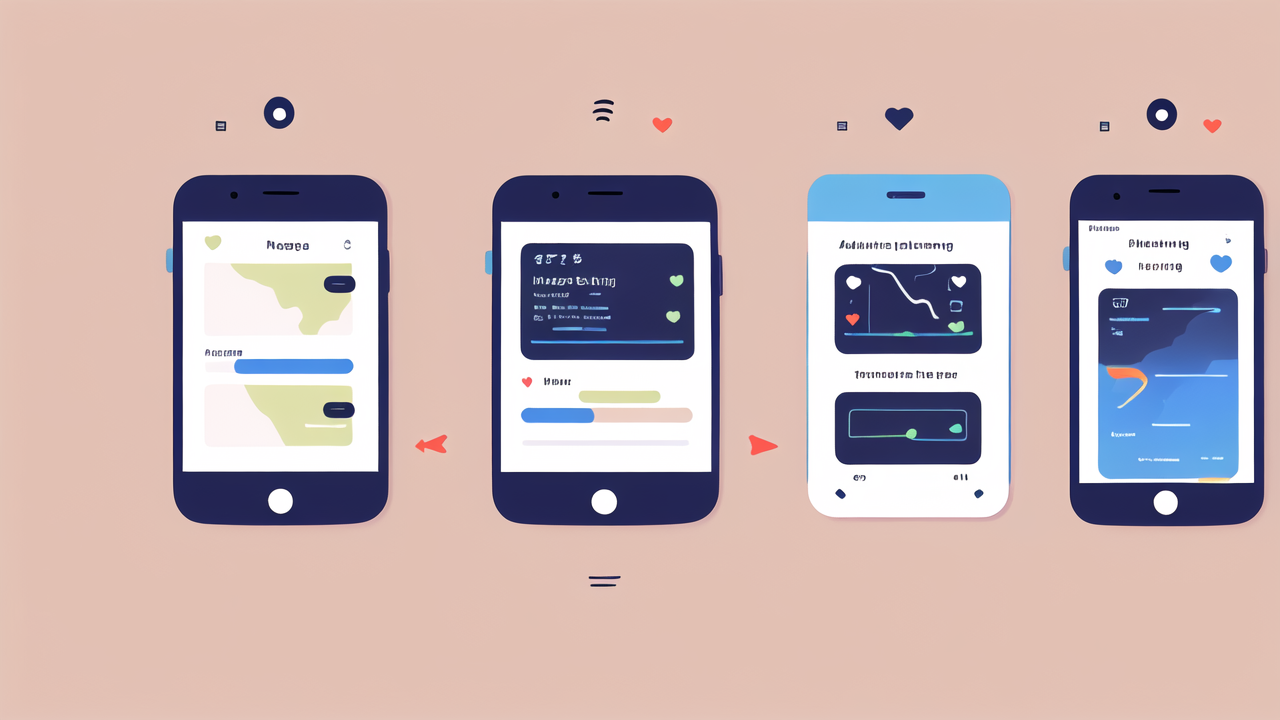Introduction to Fitness Tracking
What is a Fitness Tracker?
A fitness tracker is a wearable device that monitors and records health-related data. These gadgets track various metrics like steps, heart rate, and sleep patterns. They're designed to help users stay active and improve their overall health.

Fitness trackers come in different forms, such as wristbands, watches, or clip-on devices. They sync with smartphones or computers to provide detailed insights. Many people use them to set and achieve fitness goals.
These devices motivate users by showing progress and offering personalized recommendations. They're popular among both fitness enthusiasts and those starting their health journey.
The Evolution of Fitness Tracking Technology
Fitness tracking technology has come a long way since its inception. Early trackers were simple pedometers that counted steps. Now, they're sophisticated devices with multiple sensors and features.
The first digital fitness trackers appeared in the early 2000s. They could track steps and estimate calories burned. As technology advanced, trackers gained more functions like heart rate monitoring and GPS.
Today's fitness trackers are mini-computers on your wrist. They offer features like sleep analysis, stress monitoring, and even ECG readings. Some can track specific activities like swimming or yoga.
The integration with smartphones has greatly enhanced their capabilities. Apps provide detailed analysis and social features. This allows users to compete with friends and share achievements.
Key Features to Look for in a Fitness Tracker
GPS and Mapping Capabilities
GPS is a crucial feature for runners, cyclists, and outdoor enthusiasts. It allows trackers to map routes and provide accurate distance measurements. This feature is especially useful for training and race preparation.

Many fitness trackers now offer built-in GPS. This means you can leave your phone at home during workouts. Some devices also provide navigation features, helping you explore new routes safely.
Advanced trackers use multiple satellite systems for better accuracy. They can work even in challenging environments like dense forests or urban canyons. Look for trackers with quick GPS acquisition for hassle-free outdoor activities.
Heart Rate Monitoring Accuracy
Heart rate monitoring is key for tracking workout intensity and overall fitness. Modern trackers use optical sensors to measure heart rate continuously. This provides valuable data for both exercise and daily life.
The accuracy of heart rate monitoring varies between devices. High-end trackers often use multiple sensors for better precision. Some can even detect irregular heartbeats, alerting users to potential health issues.
For the most accurate readings, look for trackers with advanced algorithms. These can filter out noise from movement and provide more reliable data. Some trackers also offer VO2 max estimates, a measure of cardiovascular fitness.
Battery Life and Charging Convenience
Battery life is a critical factor in choosing a fitness tracker. Nobody wants their device to die mid-workout. Most modern trackers offer at least a few days of battery life. Some can last weeks on a single charge.
Consider your usage patterns when evaluating battery life. GPS and always-on displays drain batteries faster. Look for devices with power-saving modes if you need extended battery life.
Charging convenience is also important. Many trackers now offer quick charging options. Some can gain a full day's charge in just 15 minutes. Wireless charging is becoming more common, adding convenience.
The Best Fitness Trackers of the Year
Fitness Trackers for Beginners and Intermediate Users
For those new to fitness tracking, simplicity and ease of use are key. The Fitbit Charge 5 is an excellent choice for beginners. It offers a user-friendly interface and a wide range of features.

The Charge 5 tracks steps, heart rate, and sleep patterns. It also includes stress monitoring and GPS. The clear display and intuitive app make it easy to understand your data.
Another great option is the Garmin Vivosmart 4. It's slim and comfortable, perfect for all-day wear. This tracker offers advanced sleep tracking and a pulse oximeter. It's ideal for those focused on overall wellness.
For intermediate users, the Apple Watch SE provides a balance of features and affordability. It offers excellent fitness tracking capabilities and a wide range of apps. The watch also includes fall detection and emergency SOS features.
Advanced Fitness Trackers for Serious Athletes
Serious athletes need more advanced features and detailed metrics. The Garmin Fenix 7 is a top choice for this group. It offers robust GPS capabilities and advanced performance metrics.
The Fenix 7 provides detailed training data, including VO2 max and recovery time. It also offers navigation features and long battery life. This makes it ideal for endurance athletes and outdoor enthusiasts.
For triathletes, the Polar Vantage V2 is an excellent option. It offers multisport modes and advanced recovery tracking. The watch can analyze your performance and suggest optimal training loads.
Another top pick is the Coros Vertix 2. It boasts an incredible battery life of up to 140 hours in GPS mode. The watch offers detailed metrics for various sports, including mountain climbing and skiing.
Wearable Fitness Trackers with the Best User Experience
A great user experience can make all the difference in sticking to fitness goals. The Apple Watch Series 7 leads in this category. Its large, always-on display is easy to read in any lighting condition.
The Series 7 offers a seamless integration with iPhones. It provides motivating activity rings and a wide range of workout types. The watch also offers features like ECG and blood oxygen monitoring.
For Android users, the Samsung Galaxy Watch 4 provides an excellent experience. It runs on Wear OS, offering access to a wide range of apps. The watch includes body composition analysis and advanced sleep tracking.
The Fitbit Sense is another top choice for user experience. It offers a holistic approach to health tracking. The Sense includes stress management tools and skin temperature monitoring. Its app provides clear, actionable insights based on your data.




Leave a comment
This site is protected by hCaptcha and the hCaptcha Privacy Policy and Terms of Service apply.